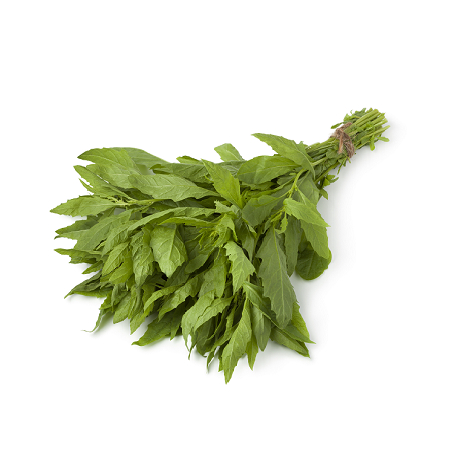
Chenopodium oil
Scientific names: Dysphania ambrosioides, Chenopodium ambrosioides, Chenopodium anthelminticum
Family: Chenopodiaceae
Alternate names: Aceite de Paico, Aceite de Quenopodio, American Wormseed, Ansérine, Aritasou, Epazote, Épazote, Erva de Santa Maria, Fausse Ambroisie, Goosefoot, Huile d'Ansérine, Huile de Chénopode, Jesuit Tea, Mastruz, Mentrasto, Mentruco, Mexican Tea, Paico, Pazote, Thé du Mexique, Wormseed
Actions: Antibacterial, Antifungal, Antiparasitic, Antitumor, Insecticidal
Background
Chenopodium oil is made from the chenopodium plant (Dysphania ambrosioides), which is also known as epazote. It grows in Central and South America.
Chenopodium oil contains high amounts of a toxic chemical called ascaridole. The amount of ascaridole found in the oil depends on the plant part used, the season, and where the plant was grown. Ascaridole is thought to paralyze roundworms, hookworms, and some tapeworms.
People use chenopodium oil for parasite infections in the intestine and other conditions, but there is no good scientific evidence to support these uses. Using chenopodium oil can also be unsafe. It has been linked with serious side effects, including death.
Don't confuse chenopodium oil, which is also called wormseed, with wormseed and wormwood. These are not the same.
Chenopodium oil contains high amounts of a toxic chemical called ascaridole. The amount of ascaridole found in the oil depends on the plant part used, the season, and where the plant was grown. Ascaridole is thought to paralyze roundworms, hookworms, and some tapeworms.
People use chenopodium oil for parasite infections in the intestine and other conditions, but there is no good scientific evidence to support these uses. Using chenopodium oil can also be unsafe. It has been linked with serious side effects, including death.
Don't confuse chenopodium oil, which is also called wormseed, with wormseed and wormwood. These are not the same.
Safety Safety definitions
When taken by mouth: Chenopodium oil is unsafe. It contains the chemical ascaridole, which is toxic. Potential side effects include dizziness, skin irritation, vomiting, deafness, paralysis, liver damage, and death.
Special Precautions & Warnings:
Pregnancy and breast-feeding: Chenopodium oil is unsafe when taken by mouth while pregnant or breast-feeding. It contains toxic chemicals.Effectiveness
Effective Effectiveness definitions
There is interest in using chenopodium oil for a number of purposes, but there isn't enough reliable information to say whether it might be helpful.
Dosing & administration
There isn't enough reliable information to know what an appropriate dose of chenopodium oil might be. It contains toxic chemicals that are unsafe. Speak with a healthcare provider before use.
Interactions with pharmaceuticals
Medications that increase sensitivity to sunlight (Photosensitizing drugs)
Interaction Rating=Moderate Be cautious with this combination.
Some medications might make the skin more sensitive to sunlight. Chenopodium oil might also make the skin more sensitive to sunlight. Using these products together might increase the risk of sunburn, blistering, or rashes when the skin is exposed to sunlight. Be sure to wear sunblock and protective clothing when spending time in the sun.
Interactions with herbs & supplements
There are no known interactions with herbs and supplements.
Interactions with foods
There are no known interactions with foods.
vital.ly has licensed monographs from TRC Healthcare.
This monograph was last reviewed on 13/06/2025 10:00:00 and last updated on 26/12/2012 18:08:46. Monographs are reviewed and/or updated multiple times per month and at least once per year.
Natural Medicines disclaims any responsibility related to medical consequences of using any medical product. Effort is made to ensure that the information contained in this monograph is accurate at the time it was published. Consumers and medical professionals who consult this monograph are cautioned that any medical or product related decision is the sole responsibility of the consumer and/or the health care professional. A legal License Agreement sets limitations on downloading, storing, or printing content from this Database. No reproduction of this monograph or any content from this Database is permitted without written permission from the publisher. It is unlawful to download, store, or distribute content from this site.




